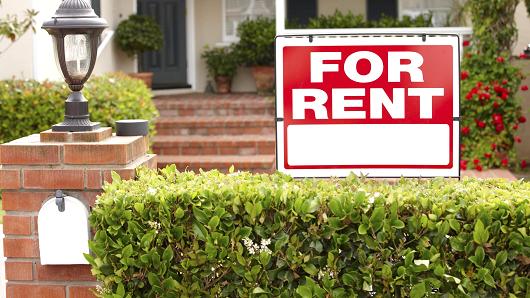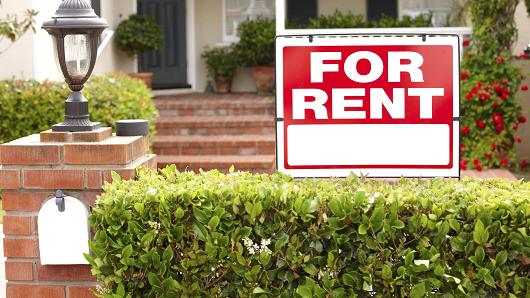Merging landlords see growing profit on rentals
Click here to view original web page at www.cnbc.com
It was supposed to be a short-term play. Investors would buy thousands of bargain-basement single-family homes during the foreclosure crisis, rent them for a few years and then sell them off and be done.
That’s what the critics thought anyway, but that is not how this still-nascent class of real estate is playing out. Instead, the big players are consolidating, which could make the stocks of those left standing potentially more attractive.
The announcement last week of a merger between Arizona-based American Residential Properties, which owns 8,938 rental homes, and California-based American Homes 4 Rent, which owns 38,377, was the third such deal in the asset class this year. The combined company will own and manage homes in 22 states and is projected to have an equity market capitalization of $5.5 billion based on closing prices as of Dec. 2.
“In our view, this is a very positive outcome for both AMH and ARPI shareholders, with substantial upside opportunities for earnings accretion over time,” said analysts at Raymond James, which is acting as financial adviser to American Homes 4 Rent. “The sector’s recent consolidation should only improve visibility, liquidity, and valuations among the remaining large players.”
The reaction on Wall Street to the merger, however, was not so positive. AMH shares were down nearly 5 percent at the close last Thursday, the day of the announcement. Analysts called that curious. (Shares are off 5.9 percent year to date.)
Hawkes blames rough third-quarter earnings on transition pains, as the company became less of a buyer and more of a manager of the rental homes. She still believes firmly in a vast growth potential for this sector, despite the recovering housing market. The roadblock, however, has always been capital.
“The stock market expects us to accomplish in three years what it took the multifamily sector 25 years to do. The ability to raise capital to grow is the critical element for the single-family rental sector, but issuing dilutive equity or increasing leverage were not attractive options for ARPI,” Hawkes said. “Absent access to growth capital, we concluded consolidation made sense in order to enhance scale, increase operating efficiencies, share best practices and create additional value for our investors. We are rearranging the chairs in the room to optimize performance.”
Two other major players in the sector, Starwood Waypoint Residential Trust and Colony American Homes, announced a merger in September that could create a company with just shy of $8 billion in assets. Together they own about 30,000 homes.
Earlier this year, Silver Bay Realty Trust agreed to buy the entire portfolio of Atlanta-based The American home. That consisted of 2,460 rental properties in three states.
Scale has always been the buzzword in the brave new world of large scale investors in single-family rental homes. Managing thousands of individual homes is a far greater challenge than managing units in a single apartment building. Some have outsourced the management, while others built an infrastructure from scratch.
The total number of single-family rental homes increased 35 percent since 2006, with smaller investors also taking on millions of distressed properties to rent. This happened as the nation’s home ownership rate fell to the lowest level in 50 years.


